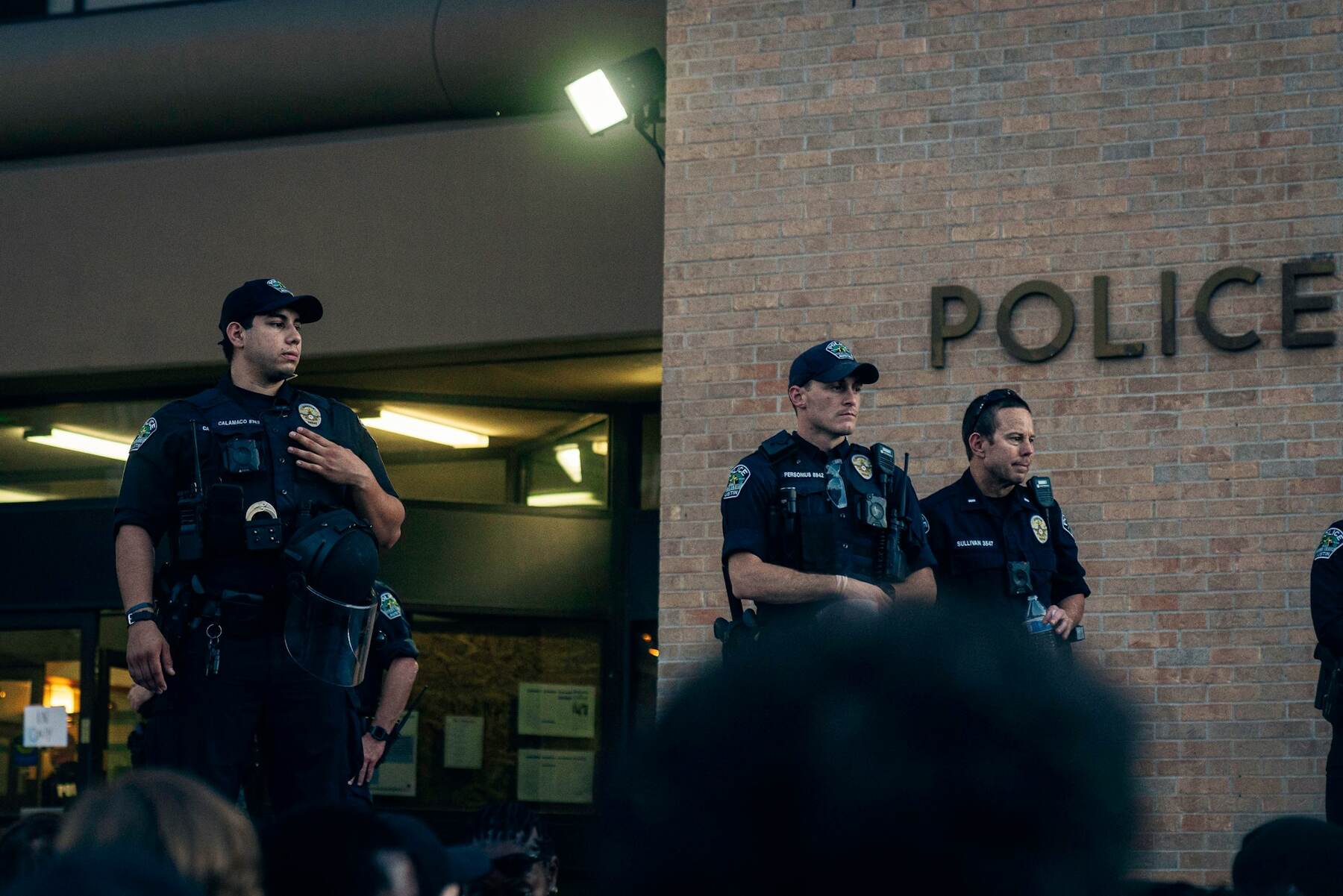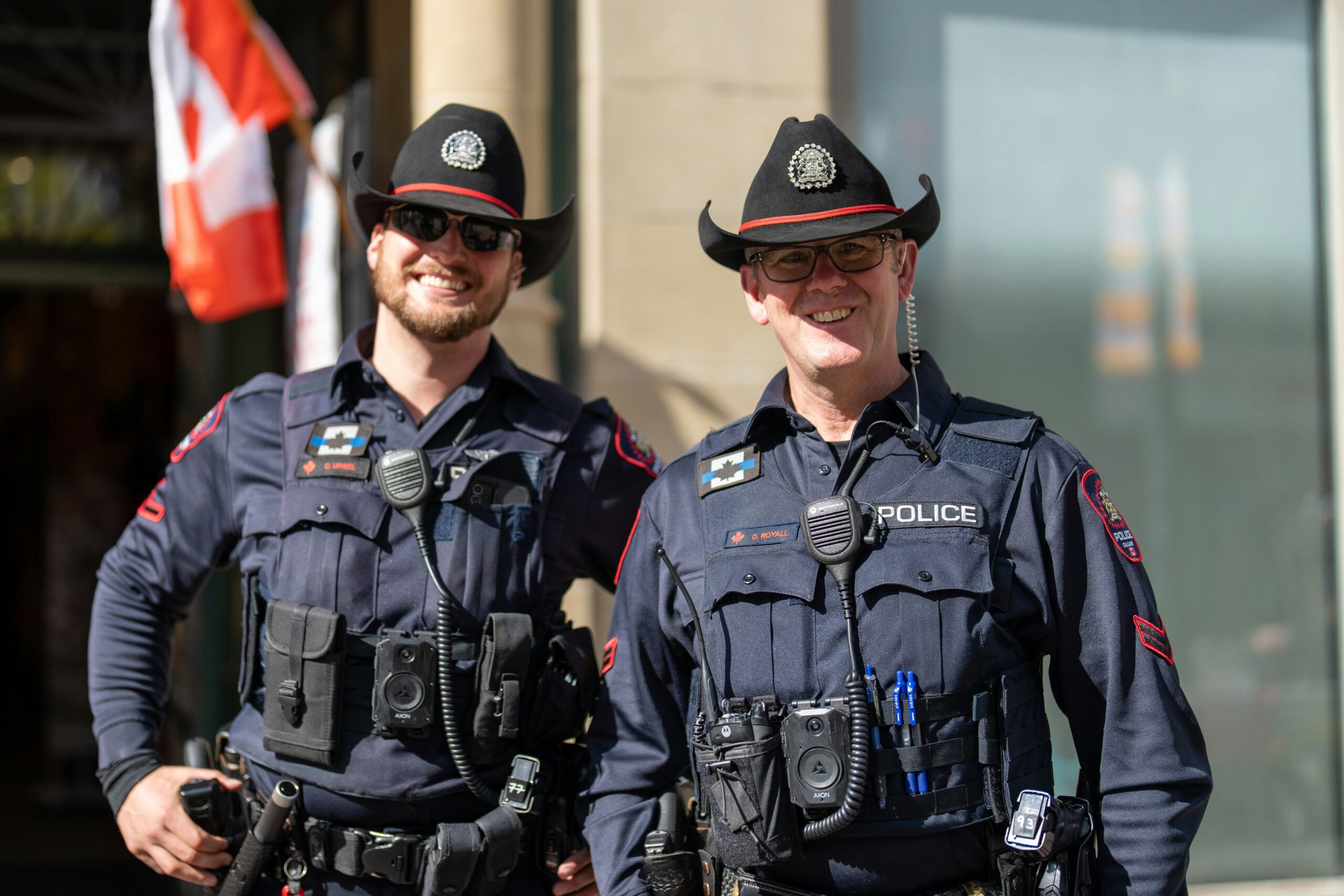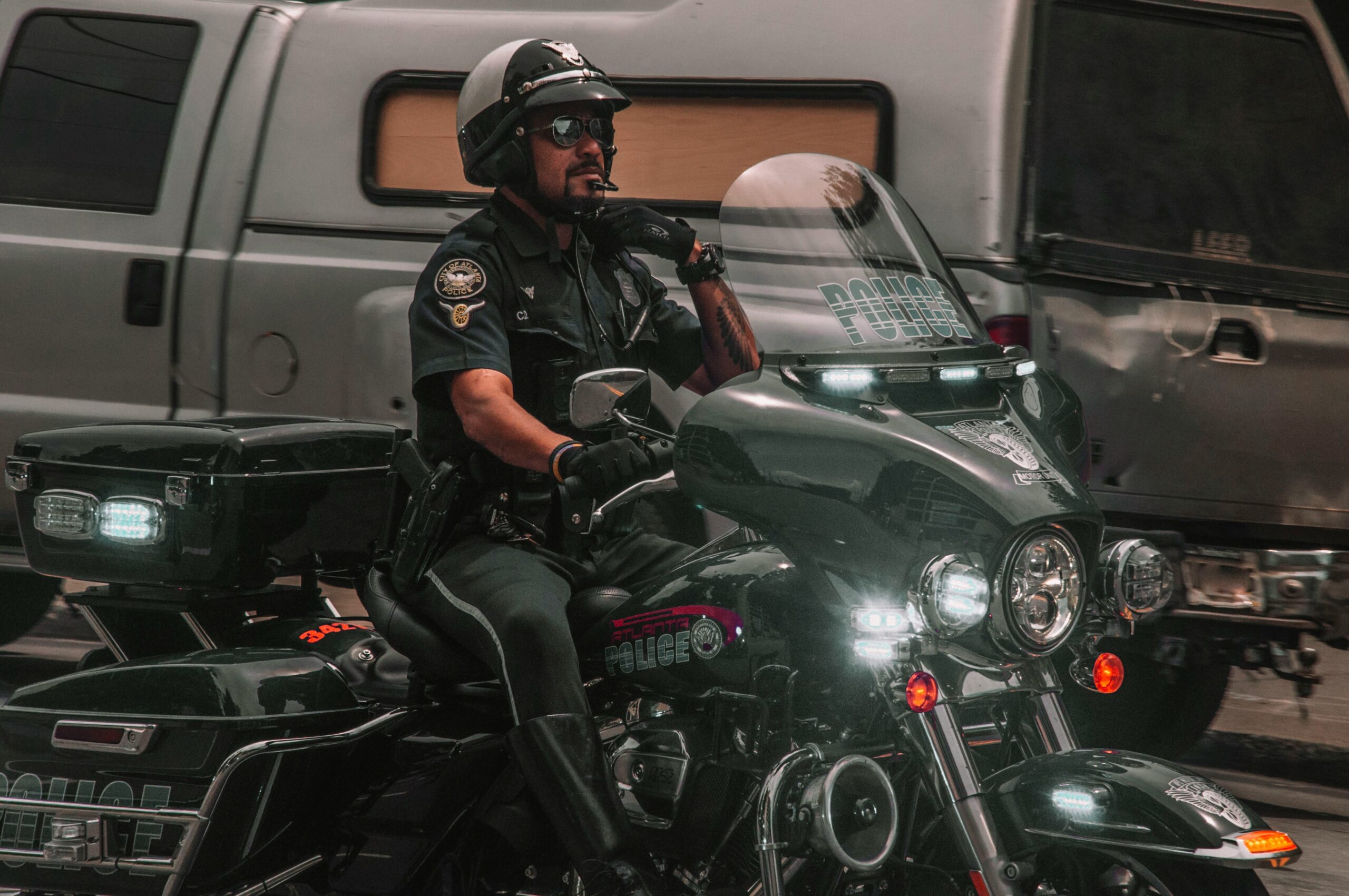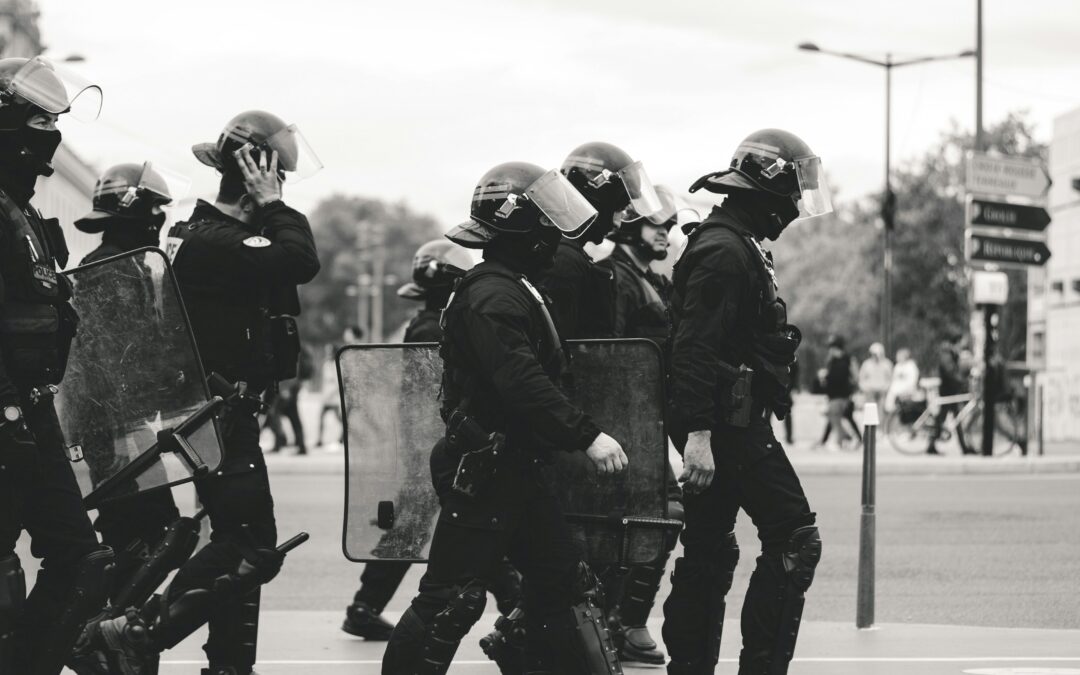When I think about becoming a police officer I know it’s more than just a job—it’s a calling that asks for dedication and the right preparation. One of the first questions I had was about the education needed to start this career. With so many different requirements out there it can feel overwhelming to figure out exactly what’s expected.
I’ve learned that the path to wearing the badge isn’t always the same for everyone. Some departments ask for more schooling than others and there’s a lot to consider before you even fill out your first application. Let’s explore what kind of education really sets you up for success in law enforcement.
Understanding Police Officer Education Requirements

Police officer education requirements span several baseline criteria across departments, with most agencies in the US setting minimum standards connected to high school diplomas or equivalent certification. Some departments in large cities—such as NYPD and LAPD—commonly list a high school diploma as the minimum credential, though many prefer candidates with associate or bachelor’s degrees in criminal justice, law enforcement, or related fields.
State-level agencies regularly expect some college coursework or degrees. For instance, the Texas Department of Public Safety and California Highway Patrol favor those who’ve completed at least 60 college credit hours or possess military service experience.
Departments may grant credit for prior law enforcement, security work, or US military service toward formal education requirements, provided candidates submit proper documentation.
Police academies exist across all 50 states, typically requiring completion of an entrance exam before enrollment. Training covers local, state, and federal laws, ethics, and practical policing skills. State Peace Officer Standards and Training (POST) boards define the specific curriculum and graduation criteria for police academies.
Some agencies mandate continuing education following academy graduation, covering new legislative mandates or advanced investigative tactics. University or community college coursework in criminal justice, sociology, or psychology can accelerate career progression within urban departments. Only accredited institutions recognized by state law enforcement bodies count toward formal education prerequisites.
Common Education Requirements Across U.S. Police Departments
| Department/Agency Type | Minimum Education | Preferred Education | Additional Criteria |
|---|---|---|---|
| Local PD (e.g., NYPD) | High School Diploma/GED | Associate’s Degree/Some College | US Citizenship, Age 21+ |
| State Police (Texas DPS) | 60 College Credit Hours/AA Degree | Bachelor’s Degree | Valid Driver’s License |
| Federal (FBI, DEA) | Bachelor’s Degree | Graduate Studies/Languages | Extensive Background Check |
| Tribal Police | Varies—often HS Diploma | Associate’s Degree | Tribal Membership Considered |
| Sheriff’s Departments | High School Diploma/GED | College Coursework | County Residency Required |
Agencies base specific requirements on local regulations, state law, and public safety priorities. I confirm that candidates with higher education levels, as verified by Bureau of Justice Statistics, are more likely to secure specialized roles or promotions in law enforcement.
Minimum Educational Qualifications

Minimum educational qualifications establish the base criteria for entering police work. Most departments in the US require foundational academic credentials before considering applicants for further training.
High School Diploma or GED
Every police applicant meets a minimum education requirement by obtaining a high school diploma or General Educational Development (GED) certificate. State and city agencies, such as NYPD and LAPD, list this as a universal baseline for entry-level candidates. My application process highlighted this foundation as the first checkpoint before written exams, physical assessments, or interviews.
| Department Type | Minimum Qualification |
|---|---|
| Local Police | High School Diploma or GED |
| State Police | High School Diploma or GED |
| Federal Agencies (FBI/DEA) | Bachelor’s Preferred |
| Campus Police | High School Diploma or GED |
| Tribal Police | High School Diploma or GED |
Additional Coursework and Preparation
Several departments enhance their educational criteria with college coursework or training modules relevant to law enforcement. Community colleges and universities offer associate degrees in criminal justice or related studies, as seen in departments like Chicago PD or Houston PD. State agencies, including the Texas Department of Public Safety, often expect some college credits in addition to the high school diploma. Military or prior law enforcement experience may substitute for college classes in select departments.
Coursework areas include criminal law, forensic science, psychology, and report writing. These subjects build analytical and communication skills required for police duties. Some agencies list these topics as prerequisites for academy entrance, while others count them toward promotional eligibility after hiring. If a candidate seeks specialty roles such as detective, investigator, or K-9 handler, human behavior and interrogation classes boost qualifications.
| Requirement | Examples |
|---|---|
| College Credits | Intro to Criminal Justice, Ethics |
| Associate/Bachelor’s Preferred | Criminology, Psychology, Sociology |
| Relevant Experience | Military Service, Security, Corrections |
| Specialized Training | Emergency Response, Firearms Safety |
Higher Education and Degree Options
Higher education expands my law enforcement career options and increases my chances for advancement. Police departments, especially those in competitive urban areas or federal agencies, often give preference to candidates with degrees in related fields.
Associate Degree in Criminal Justice
An associate degree in criminal justice introduces law enforcement theories and essential policing skills. Community colleges offer this 2-year program, covering coursework in criminal law, corrections, forensics, and investigative techniques. I’ve found that departments in states such as Illinois and New Jersey commonly recognize this degree for entry-level positions, lateral transfers, or specialty assignments. Some agencies accept prior military experience or police academy credits toward an associate degree.
| Key Course Areas | Common Topics | Typical Credits |
|---|---|---|
| Law Enforcement Basics | Police Procedures, Patrol Practices | 6-9 |
| Criminal Law | Court Systems, Penal Codes | 6-8 |
| Forensics & Evidence | Crime Scene Management, DNA | 3-6 |
| Sociology & Psychology | Community Policing, Conflict | 3-6 |
Bachelor’s Degree Advantages
Bachelor’s degrees equip me with specialized knowledge and broader career paths. Criminal justice remains the most common major, but departments look favorably on applicants with degrees in public administration, homeland security, social work, or psychology. Federal law enforcement, such as the FBI or DEA, typically asks for a 4-year degree for entry-level agent positions. Larger city police agencies—including the NYPD and LAPD—prefer or require a bachelor’s for detective, supervisory, or training roles.
| Degree Type | Minimum Education | Role Specializations | Promotion Potential |
|---|---|---|---|
| Associate Degree | 2-year college | Patrol Officer, Community Liaison | Entry |
| Bachelor’s Degree | 4-year university | Detective, Investigator, Supervisor | High |
Graduates earn higher starting pay and qualify faster for advanced assignments. Specific coursework in leadership, emergency management, or digital forensics increases my appeal for specialized units or administrative tracks.
Higher education—associate or bachelor’s—consistently positions me as a stronger candidate for modern policing’s challenges.
Specialized Training and Police Academies

Specialized training forms a core part of preparing for a law enforcement career. Accredited police academies across the US deliver both foundational and advanced skills needed for effective policing.
Police Academy Curriculum
Police academy curriculum provides recruits with a standardized framework of legal knowledge, physical skills, and ethical practices. Large agencies in states like California or New York structure academy programs to cover constitutional law, arrest procedures, firearm use, driving maneuvers, investigation techniques, defensive tactics, and community policing.
| Academy Curriculum Component | Description | Example Topics |
|---|---|---|
| Legal Studies | Teaches laws, rights, and statutes | Search and seizure, Miranda rights |
| Practical Skills | Focuses on action-oriented training | Firearms, defensive driving |
| Physical Fitness | Develops endurance and strength | Obstacle courses, defensive tactics |
| Community Policing | Builds communication abilities | De-escalation, cultural awareness |
| Ethics and Conduct | Reinforces integrity standards | Use of force, bias training |
State-mandated academy programs often last 13–27 weeks. Recruits complete written exams and practical assessments for graduation eligibility.
On-the-Job Training and Continuing Education
On-the-job training and continuing education reinforce academy lessons through field applications. New officers, called probationary officers, work directly with experienced field training officers (FTOs). This period typically spans 12–20 weeks, depending on department size and location.
Departments in cities like Chicago or Los Angeles require ongoing coursework in areas such as legal updates, crisis intervention, and advanced investigative strategies. Many agencies also mandate annual or biennial re-certification in first aid, firearms, and defensive tactics.
| Training Stage | Purpose | Duration/Requirement |
|---|---|---|
| Field Training | Supervised real-world policing | 12–20 weeks (varies by agency) |
| Ongoing Education | Updates on law and procedure changes | Annually or as mandated |
| Specialized Courses | Prepares for SWAT, cybercrime, K-9, etc | Optional or role-specific |
Agencies across the US align these continuing education requirements with evolving legal standards and public safety demands, enhancing officer readiness and professional development.
Alternatives and Advancements in Police Education

Police education now offers flexible options that adapt to evolving policing needs. I see non-traditional learning paths and advanced academic tracks providing law enforcement candidates and officers with broader skills, industry certifications, and career mobility.
Online Courses and Certifications
Online courses in police studies, criminal justice, and specialized topics—like digital investigation or forensic accounting—let candidates and officers balance work while learning. Major institutions such as Penn State World Campus and American Public University System provide accredited law enforcement education online.
| Program Type | Duration | Focus Area | Institution Example |
|---|---|---|---|
| Law Enforcement Certificate | 6–12 months | Community policing, ethics | Penn Foster College |
| Digital Forensics Course | 9–16 weeks | Cybercrime, evidence handling | National White Collar Crime Center |
| Criminal Justice Associate | 2 years | Law, criminology, procedure | Wake Tech Community College |
Online certifications in de-escalation, crisis intervention, and implicit bias, offered by organizations like the International Association of Chiefs of Police, enhance competencies relevant to current policing challenges.
Advancing Through Graduate Studies
Graduate study in fields such as criminal justice, public administration, or forensic psychology opens opportunities for leadership, research, and specialized roles. Master’s and doctoral programs at universities like John Jay College of Criminal Justice develop high-level skills in law enforcement management, policy analysis, and investigative science.
| Degree Level | Typical Requirement | Example Job Advancement |
|---|---|---|
| Master’s | Bachelor’s + 2 years | Police Captain, Crime Analyst |
| Doctorate | Master’s + Dissertation | Criminal Justice Professor, Policy Advisor |
Advanced degrees often qualify officers for supervisory or federal positions, as seen in agencies like the FBI and DEA, where graduate-level knowledge supports operational effectiveness and policy leadership.
Conclusion
Choosing a career in law enforcement means committing to ongoing learning and personal growth. I’ve seen how the right education not only opens doors but also shapes the way officers serve their communities. As policing continues to evolve, staying informed and adaptable through education and training gives you the tools to build a rewarding and impactful career.
Frequently Asked Questions
What education is required to become a police officer?
Most police departments require at least a high school diploma or GED. Some agencies, especially larger departments and federal agencies, prefer candidates with an associate or bachelor’s degree in criminal justice or a related field.
Do police academies require previous college coursework?
Requirements vary. While most academies only need a high school diploma or GED, some state agencies expect some college coursework or prior law enforcement/military experience as part of their admissions criteria.
How long does police academy training last?
Police academy programs typically last between 13 and 27 weeks. Training covers law, ethics, practical policing skills, physical fitness, and community relations, with both written and practical exams required for graduation.
What happens after graduating from the police academy?
New officers, called probationary officers, undergo on-the-job training alongside experienced field training officers. This probation period usually lasts 12–20 weeks to ensure readiness for independent patrol duties.
Is continuing education required for police officers?
Yes, many agencies require officers to complete ongoing training and re-certification in areas such as firearms, legal updates, and ethics. This may occur annually or biennially, depending on agency policies.
Can college courses help me advance in law enforcement?
Yes, earning additional college credits or degrees in criminal justice, forensic science, or related fields can lead to specialized assignments, promotions, and leadership opportunities within law enforcement agencies.
Are there flexible or online education options for police officers?
Absolutely. Many accredited colleges and training programs offer online courses and flexible schedules, allowing current officers and aspiring candidates to balance work, education, and personal commitments.
Do federal law enforcement agencies have higher education requirements?
Yes, most federal agencies prefer or require candidates to have at least a bachelor’s degree, often in criminal justice or a related field, to qualify for entry-level positions.
How does specialized police training help my career?
Specialized training in areas such as investigations, cybercrime, or community policing provides officers with valuable skills, increases job satisfaction, and can open doors to advanced roles and promotions.
What alternative paths exist for career growth in law enforcement?
Options include earning industry certifications, attending graduate school in criminal justice or public administration, and pursuing online or part-time programs. Such routes help officers qualify for supervisory and federal positions.

